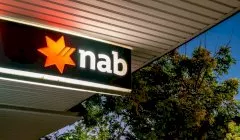Invest
Rate cut still on the cards as inflation figures released
The official March 2017 quarter inflation figures show the Consumer Price Index is creeping back into the RBA’s ‘target band’ of 2-3 per cent, but a rate cut is not off the table.
Rate cut still on the cards as inflation figures released
The official March 2017 quarter inflation figures show the Consumer Price Index is creeping back into the RBA’s ‘target band’ of 2-3 per cent, but a rate cut is not off the table.

The Australian Bureau of Statistics' (ABS's) March 2017 quarter Consumer Price Index shows inflation rose 0.5 per cent for the quarter and 2.1 per cent year-on-year.
The Reserve Bank of Australia's (RBA's) underlying measure of inflation (the average of the ABS's trimmed mean and weighted median figures) was up 0.4 per cent in the March quarter, with annual growth up 1.8 per cent.
Commenting on the figure, AMP Capital chief economist Shane Oliver said the latest move is slightly below market expectations but a welcome development for the RBA.
"The RBA targets inflation of 2-3 per cent over time, so the latest upward move in underlying inflation would certainly be welcomed by the central bank given that the RBA rate cuts in 2016 were largely in response to very low inflation readings," Mr Oliver said.

Yesterday's ABS figures are consistent with the RBA's inflation forecasts, which predict headline inflation of 2 per cent and underlying inflation of 1.75 per cent by the June quarter.
"While the March quarter inflation result slightly disappointed expectations, the RBA would be happy that inflation is moving in the right direction (into its 2-3 per cent target band)," Mr Oliver said.
"But underlying inflation is still too low and will probably remain below the RBA’s target band for the majority of 2017. Wages growth still remains around record lows, the economy is running below-trend which indicates that spare capacity exists and the Australian dollar remains too high, all which will keep a lid on underlying inflation.
"Our base case is that with inflation moving in the right direction and given the RBA’s increased emphasis on an inflated Sydney and Melbourne housing market and rising household debt, the RBA is unlikely to make any adjustments to interest rates any time soon and we expect it to keep the cash rate at 1.5 per cent for the next year at least.
"However, low underlying inflation pressures mean that there is still more chance of a rate cut this year than a rate hike."

Spending
Household Spending Pops, Rate Hike Looms: A CFO Playbook from an Australian Retail Case
Fresh ABS data shows household outlays running hotter than expected, particularly in services—stoking calls for an RBA move as early as February. For operators, the macro headline is simple; the ...Read more

Spending
State Street economist comments on softer-than-expected CPI data
In light of the latest Consumer Price Index (CPI) data release, Krishna Bhimavarapu, APAC Economist at State Street Investment Management, has provided insight into the implications for the Australian ...Read more

Spending
Moneysmart study reveals Gen Z women more concerned about finances than men
A new research conducted by ASIC’s Moneysmart has unveiled the heightened levels of stress and concern regarding finances and the cost of living among Australian Gen Z women compared to their male ...Read more

Spending
The cost of politeness: Aussies out of pocket by $1,350 due to 'awkward tax'
It's the time of year when Australians dive into their pockets for festive events and gatherings, yet a recent study by PayPal suggests that many are too polite, or perhaps too embarrassed, to ask for ...Read more

Spending
Aussies can ‘NAB Now Pay Later’ with the last major bank to embrace BNPL
NAB has become the latest bank to enter the BNPL market. Read more

Spending
Aussie households spent $368 a week on transport after petrol price surge
Fuel costs have increased by 40 per cent over the past year, a new report from the Australian Automobile Association has revealed. Read more

Spending
Voters say reducing the cost of living should be the government’s top priority
Aussies have ranked high cost of living as the top issue that needs to be addressed by the next government. Read more

Spending
Bodies back Labor’s commitment to stronger BNPL regulation
All parties should commit to stronger regulations for the BNPL sector, according to Financial Counselling Australia. Read more

Spending
Household Spending Pops, Rate Hike Looms: A CFO Playbook from an Australian Retail Case
Fresh ABS data shows household outlays running hotter than expected, particularly in services—stoking calls for an RBA move as early as February. For operators, the macro headline is simple; the ...Read more

Spending
State Street economist comments on softer-than-expected CPI data
In light of the latest Consumer Price Index (CPI) data release, Krishna Bhimavarapu, APAC Economist at State Street Investment Management, has provided insight into the implications for the Australian ...Read more

Spending
Moneysmart study reveals Gen Z women more concerned about finances than men
A new research conducted by ASIC’s Moneysmart has unveiled the heightened levels of stress and concern regarding finances and the cost of living among Australian Gen Z women compared to their male ...Read more

Spending
The cost of politeness: Aussies out of pocket by $1,350 due to 'awkward tax'
It's the time of year when Australians dive into their pockets for festive events and gatherings, yet a recent study by PayPal suggests that many are too polite, or perhaps too embarrassed, to ask for ...Read more

Spending
Aussies can ‘NAB Now Pay Later’ with the last major bank to embrace BNPL
NAB has become the latest bank to enter the BNPL market. Read more

Spending
Aussie households spent $368 a week on transport after petrol price surge
Fuel costs have increased by 40 per cent over the past year, a new report from the Australian Automobile Association has revealed. Read more

Spending
Voters say reducing the cost of living should be the government’s top priority
Aussies have ranked high cost of living as the top issue that needs to be addressed by the next government. Read more

Spending
Bodies back Labor’s commitment to stronger BNPL regulation
All parties should commit to stronger regulations for the BNPL sector, according to Financial Counselling Australia. Read more








